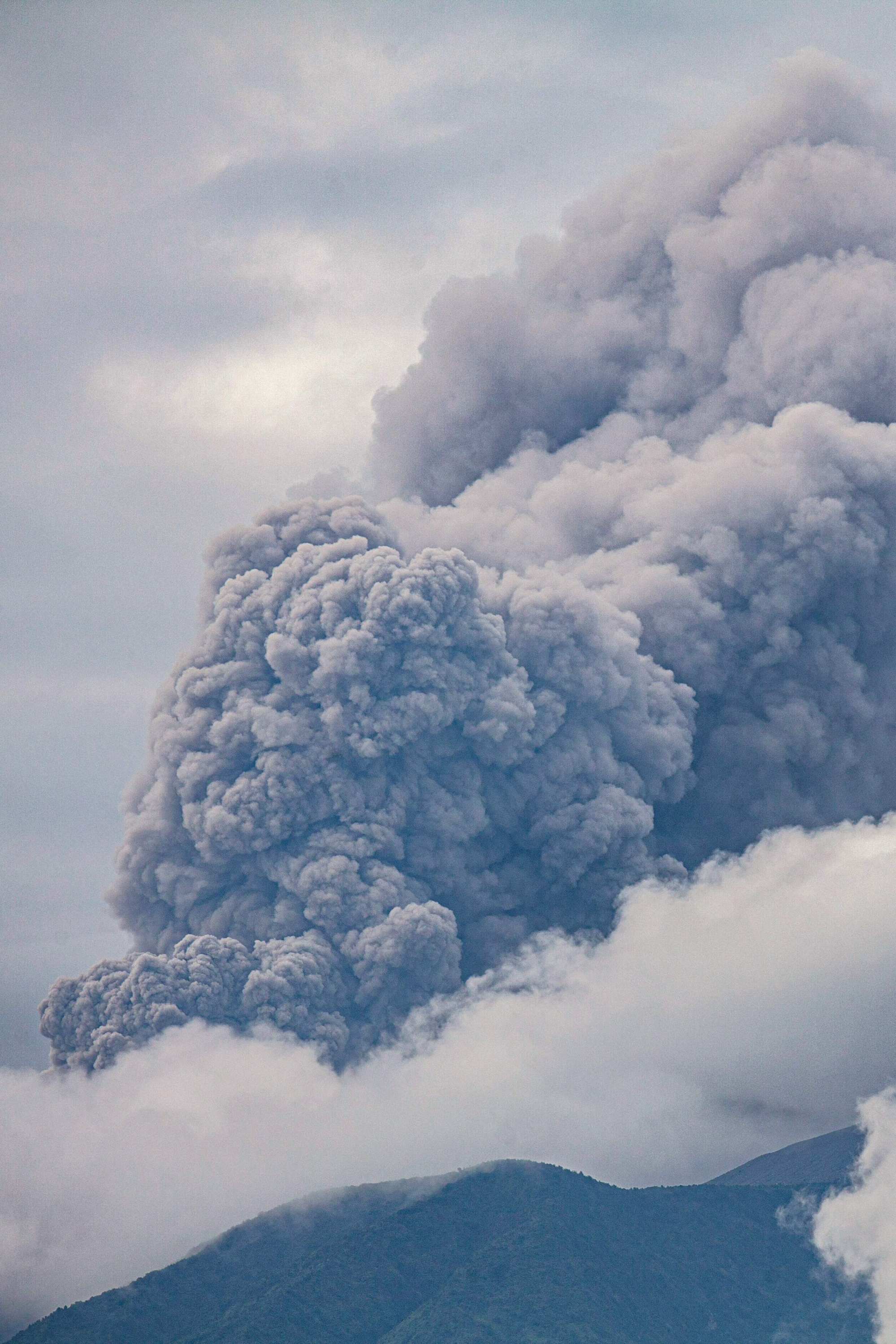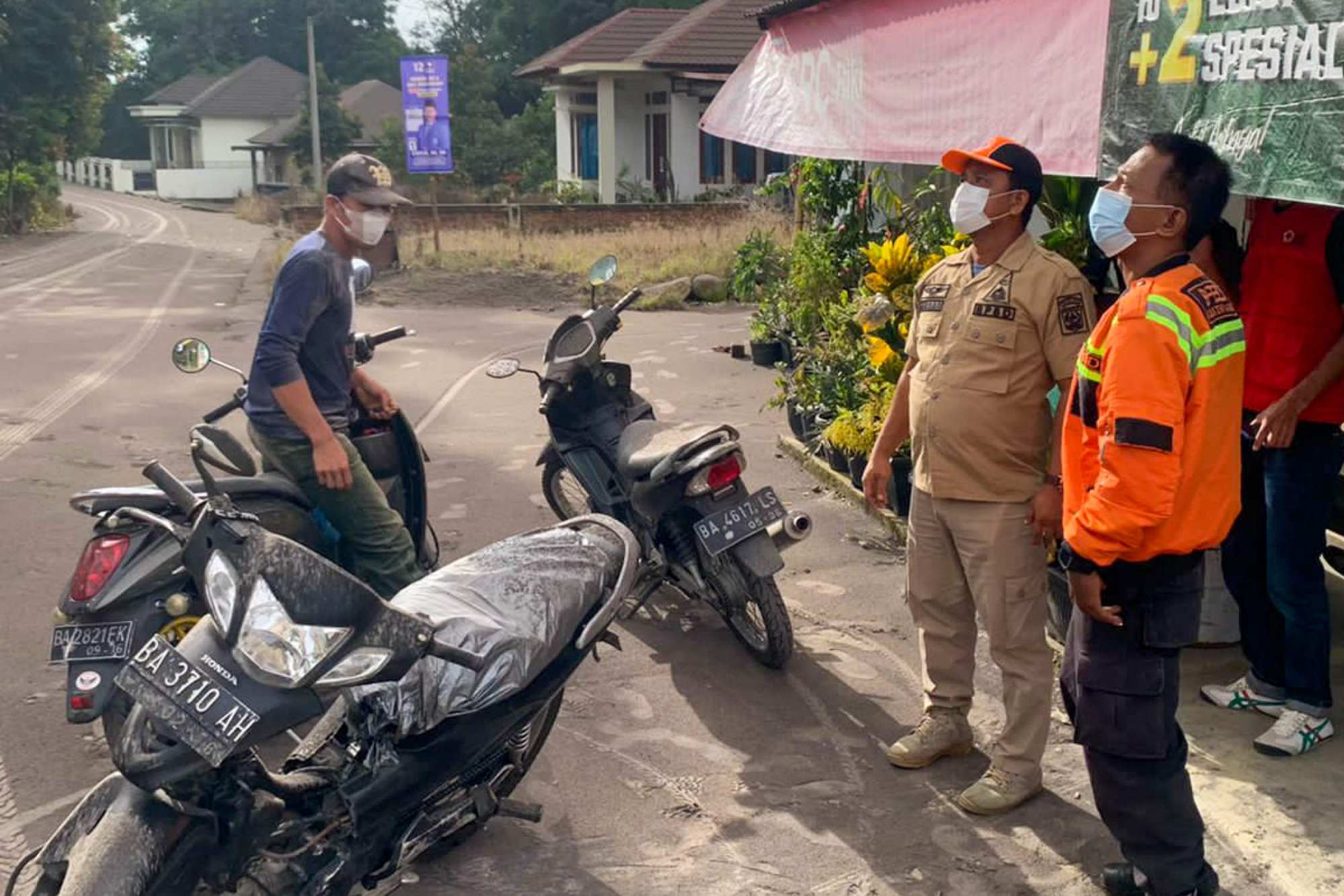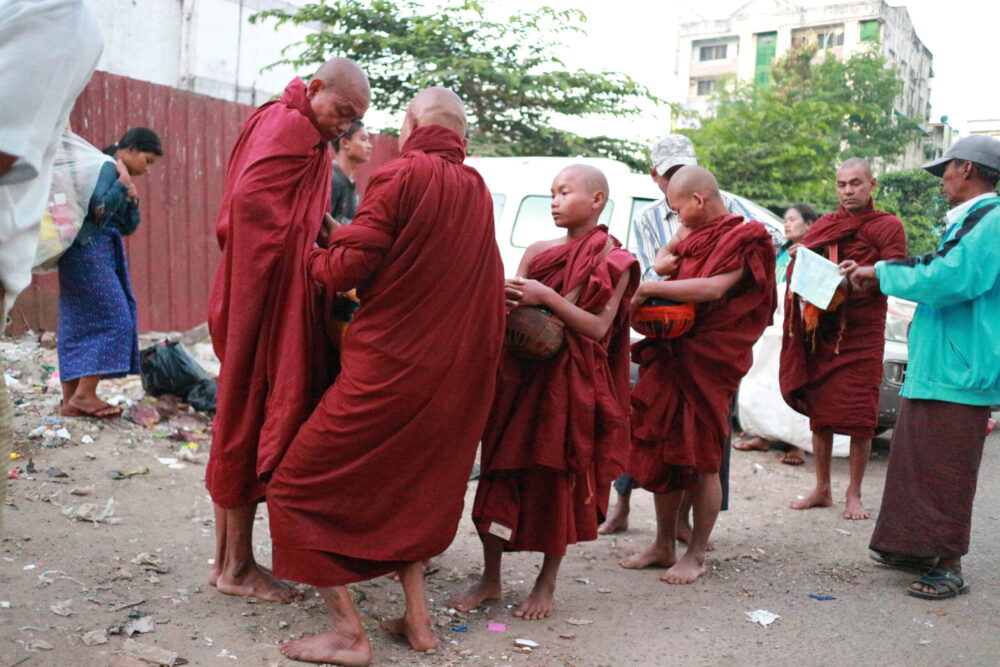[ad_1]
A volcano in western Indonesia erupted on Sunday, belching a column of ash around three kilometres into the sky, officials said.
Ash from Mount Marapi on the island of Sumatra was observed 3,000 metres (9,842ft) above its peak, according to Hendra Gunawan, head of Indonesia’s Centre of Volcanology and Geological Hazard Mitigation.
There were no immediate reports of damage or casualties after the eruption at 2:54pm local time.

“The column of ash was observed in grey colour with thick intensity leaning toward the east,” Gunawan said in a statement.
“The eruption is still ongoing.”
The volcano, with a peak of 2,891 metres, is on the third-highest alert level of Indonesia’s four-step system and authorities imposed an exclusion zone around Marapi’s crater.
“Communities around the Marapi volcano and tourists are not allowed to hike the Marapi volcano within a three kilometre radius from its crater/peak,” Gunawan said.
Ahmad Rifandi, an official at the Mount Marapi monitoring station, told Agence France-Presse that ash rain was observed after the eruption.
“For the ash rain, it has reached to Bukittinggi city,” he said, referring to the third-largest city in West Sumatra that has a population of more than 100,000.
“It is hoped for people who have activities around Marapi mountain to wear hats, glasses and masks.”
Indonesia, ADB, owners agree to shut coal-fired power station early in new plan
Indonesia, ADB, owners agree to shut coal-fired power station early in new plan
Mount Marapi, which means “Mountain of Fire”, is the most active volcano on Sumatra island.
The Indonesian archipelago sits on the Pacific Ring of Fire, where the meeting of continental plates causes high volcanic and seismic activity.
In May its most active volcano, Mount Merapi on the island of Java, spewed lava more than two kilometres from its crater.
The Southeast Asian country has nearly 130 active volcanoes.

Also on Sunday, rescuers said they had recovered the body of a man buried under tons of mud and rocks from flash floods and a landslide that crashed on to a hilly village on Sumatra island. Officials said 11 people are still missing.
Tons of mud, rocks and trees rolled down from a mountain late on Friday triggered by torrential rain, reaching a river that burst its banks and tore through mountainside villages near the popular Lake Toba in North Sumatra province.
Rescuers used excavators, dogs and sometimes their bare hands to shift the rubble in the worst-hit village as they searched for the dead and missing, said Sariman Sitorus, the spokesman for the local Search and Rescue Agency.
They also deployed several divers equipped with sonar detection to find possible victims swept into Lake Toba, Sitorus said.
He said rescuers late on Saturday pulled out a mud-caked body on the lakeside, about 500 metres from the devastated Senior Bakara Hotel. The man was identified as a hotel employee.

The National Disaster Management Agency said the landslide and flash floods damaged at least 35 houses, a church, a school and a hotel in the village of Simangulampe, forcing about 55 families to flee to a temporary government shelter.
Seasonal rain from about October to March frequently causes flooding and landslides in Indonesia, an archipelago of 17,000 islands where millions of people live in mountainous areas or near fertile flood plains.
The 1,145-square-kilometre (440-square-mile) Lake Toba, formed out of an ancient super volcano, is a popular sightseeing destination on the island of Sumatra and one of 10 stunning natural attractions in Indonesia that the government aims to develop as magnets for international tourists.
Additional reporting by Associated Press
[ad_2]
Source link





















